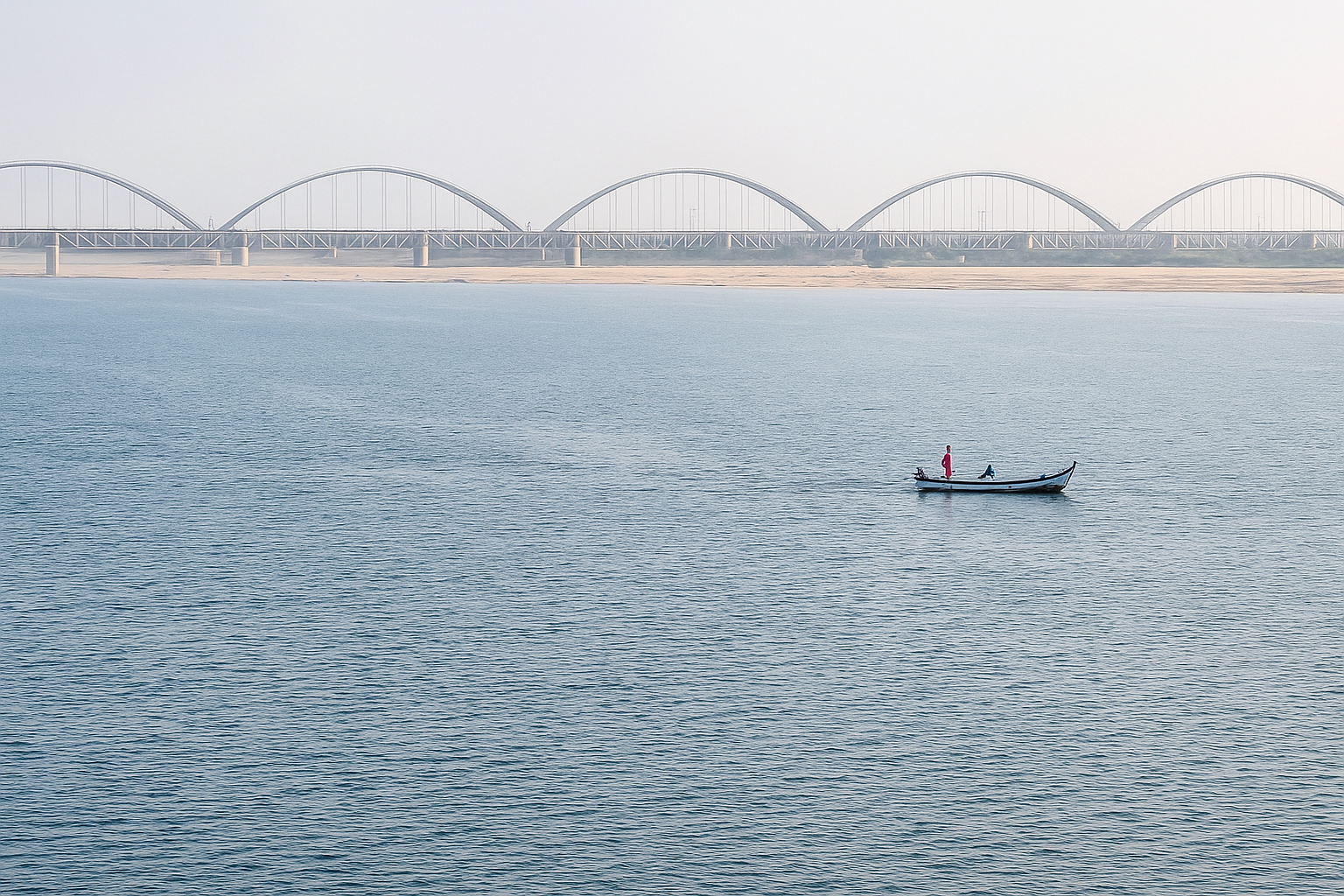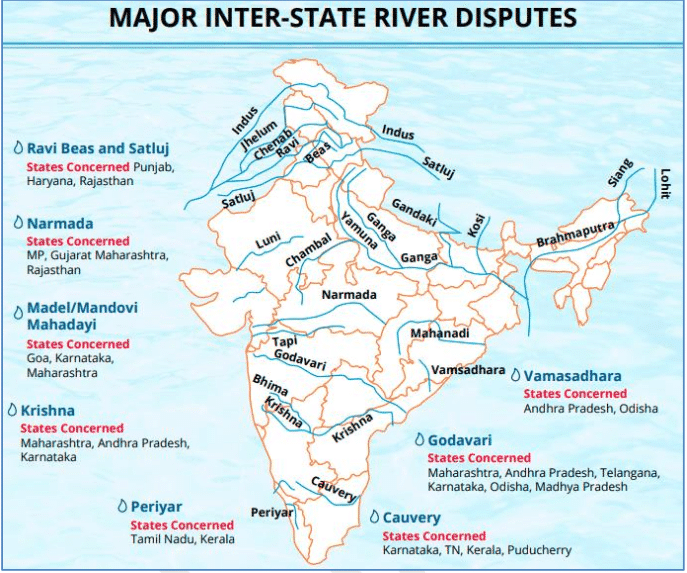



Andhra Pradesh's Banakacherla reservoir project aims to divert Godavari water to the drought-prone Rayalaseema region. Telangana opposes this, claiming the project is unapproved and violates the 2014 Reorganisation Act, threatening its water security. The dispute has become a major political issue, reviving old grievances over water sharing.

Copyright infringement not intended
Picture Courtesy: INDIAN EXPRESS
A water dispute has emerged between Andhra Pradesh and Telangana over the Banakacherla reservoir project.
It aims to address the water scarcity in the drought-prone Rayalaseema region of Andhra Pradesh.
The project plans to link the Godavari River with the Penna River via the Krishna River.
A new reservoir will be constructed at Bollapalli in the Guntur district, with five lift stations to pump water to the Banakacherla reservoir.
The Andhra Pradesh government stated that the project will only utilize surplus water from the Godavari River.
Telangana has raised strong objections to the Banakacherla project, mentioning several violations and potential threats to its water security.
Violation of the AP Reorganisation Act, 2014 => Telangana claims that the project violates the Andhra Pradesh Reorganisation Act of 2014, which mandates prior approval from the Apex Council for any new water projects. The project has not received clearance from the Krishna River Management Board (KRMB), the Godavari River Management Board (GRMB), or the Central Water Commission (CWC).
Undefined Surplus Water => The Godavari Water Disputes Tribunal had allocated 968 TMCft of Godavari water to Telangana out of a total of 1,486 TMCft, but it did not determine the quantum of surplus water. Telangana argues that diverting water without a clear definition and agreement on surplus water threatens its allocation.
Impact on Telangana's Projects => The diversion of Godavari water to the Banakacherla reservoir could negatively affect Telangana's own irrigation and water supply projects that depend on the Godavari.
 Root Causes of Water Disputes
Root Causes of Water Disputes
Increasing Water Scarcity => Growing population, urbanization, and the demands of agriculture and industry have put immense pressure on water resources.
Historical and Geographical Factors => The reorganization of states on linguistic lines often disregarded the natural boundaries of river basins.
Vagueness in Water-Sharing Agreements => Lack of clear and scientific data on water availability and flow leads to conflicting claims.
Political Mobilization => Water is an emotive issue, and political parties often use these disputes for electoral gains, making objective negotiations difficult.
Inefficient Water Use => Agricultural practices, such as the cultivation of water-intensive crops like paddy and sugarcane, often encouraged by policies like Minimum Support Price (MSP), exacerbate water demand.
Strain on Federalism => These disputes create a trust deficit between states and between the states and the Centre.
Economic Consequences => Delays in resolving disputes hinder the development of irrigation and hydropower projects, leading to economic losses.
Social Unrest => Protests and agitations related to water disputes can lead to law-and-order problems.
Strengthening Institutions => There is a need for a permanent, multi-disciplinary mechanism for dispute resolution, as envisaged in the Inter-State River Water Disputes (Amendment) Bill, 2019.
Integrated River Basin Management => Adopting a holistic approach that considers the entire river basin as a single ecological and hydrological unit is essential. This could involve activating the River Boards Act.
Data-Driven Approach => Establishing a robust, transparent, and real-time data collection and sharing mechanism on water availability and use among states.
Promoting Water Use Efficiency => Encouraging water-saving irrigation techniques (like drip and sprinkler systems), promoting the cultivation of less water-intensive crops, and investing in water recycling and harvesting.
Building Political Consensus => Promoting a spirit of cooperative federalism where states engage in dialogue and negotiation to find mutually acceptable solutions, rather than resorting to prolonged legal battles.
Must Read Articles:
INTERSTATE RIVER WATER DISPUTES
INTERSTATE RIVER WATER DISPUTES ACT, 1956 (IRWD)
Source:
|
PRACTICE QUESTION Q. "Cooperative federalism is key to resolving inter-state water disputes." Critically analyze. 250 words |




© 2026 iasgyan. All right reserved